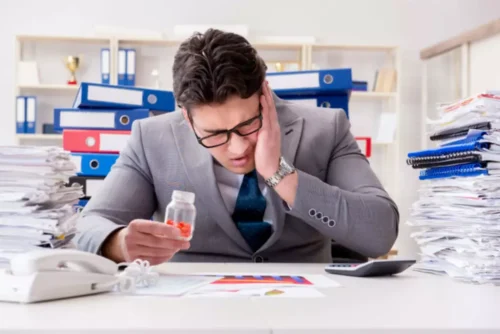Some of the common symptoms of alcohol-related ‘dementia’ may make it harder for a person to take part in an alcohol treatment programme. These symptoms can include denial, lack of insight and being impulsive. It can be difficult to get an assessment, as some GPs will insist that the person has stopped drinking for several weeks before they can assess the person’s memory. Some experts think that a person can be assessed for alcohol-related ‘dementia’ while they are still drinking too much, as long as they aren’t intoxicated at the time of the assessment.
Signs and symptoms
- Drinking alcohol in moderation has not been considered a cause of health problems or dementia.
- The study defined moderate drinking as consuming 1–13 standard drinks per week, equivalent to 10–130 grams (g) per week.
- Dealing with all these issues is important for helping the person to stay alcohol-free, and to reduce the symptoms of alcohol-related ‘dementia’.
- The searches also considered subtypes of dementia in addition to Alzheimer’s disease, such as alcohol-related WKS and vascular, frontotemporal, and Lewy body dementias.
If a person regularly drinks too much alcohol it can be toxic to their nerve cells. Over time, drinking too much alcohol can cause brain cells to die and a person’s brain tissue to shrink. This means there are fewer cells to carry the messages that the brain needs to do different tasks. ARBD is caused by a person regularly drinking or binge-drinking much more alcohol than the recommended limit. Alcohol can damage the brain in several different ways, but the most common are the following. If a person regularly drinks much more than the recommended limit of alcohol, it can damage their brain.
Damage to nerve cells
They’ll likely start by doing a physical exam and asking about your physical and psychological symptoms. They may also ask you to complete a questionnaire about symptoms related to your memory and cognitive abilities. Alcoholic dementia encompasses several different alcohol-induced neurological conditions that can affect thinking skills. Additionally, medications that are indicated for treating dementia, such as Namenda (memantine), may be prescribed, but the benefits are not established for alcoholic dementia. Alcoholic dementia can occur at any age, and it is expected to worsen rapidly (within a few years) after the initial symptoms begin. Although research shows improved cognitive functions, it’s not a full recovery or 100% reversible.
- We invite you tocontact usto learn how to get started on your journey to lasting recovery from the effects of alcohol addiction.
- Alcohol-related ‘dementia’ is a type of alcohol-related brain damage (ARBD).
- Alcoholic dementia involves memory loss and a variety of other cognitive impairments.
- The Substance Abuse and Mental Health Services Administration (SAMHSA) has a confidential, free national hotline that can help you find local treatment, support groups, and community organizations.
Learn about alcohol-related ‘dementia’
- Simple activities like buttoning clothes or tying shoelaces become challenging, impacting their independence and overall quality of life.
- Abstinence of up to one year is linked with improved attention, working memory, and problem-solving abilities.
- Although AUD, WKS, and Alzheimer’s disease all affect memory processes, the effects of Alzheimer’s disease on mnemonic functions are greater than those observed in AUD and WKS.
- Because they can engage in conversation, a person with WKS may appear normal at first glance.
Sometimes, nutritional supplementation can help prevent the progression of this type of dementia. Additionally, stopping alcohol use is a key factor in preventing additional damage that causes worsening of alcoholic dementia. It can be dangerous to stop alcohol abruptly, and it’s safer to go through alcohol detoxification under medical supervision.
Health Challenges
Joining a support group during this phase of treatment might also be beneficial.When you stop drinking, your symptoms often cease getting worse and often become better. However, occasionally, your care team may prescribe the medications memantine or rivastigmine, which are common drugs for treating the symptoms of Alzheimer’s. You may also have a brain scan, depending on your symptoms, to rule out other possible causes of bleeding in the brain, such as a tumor, stroke, or physical damage.
Recognizing and Treating Alcohol-Related Dementia
High acuity care means that your loved one can be taken care of no matter how their needs change over time. This dementia generally occurs as a result of long-term alcoholism, but it can also arise from frequent episodes of heavy drinking or binge drinking throughout their lives. The primary treatment for alcohol-related dementia is thiamine or vitamin B1 supplementation.
- A person may consider joining support groups or attending counseling or therapy if alcohol use is impairing their quality of life in the short and long term.
- Long-term alcohol consumption may cause you to suffer the symptoms of alcohol withdrawal, which include agitation, mood swings, and confusion.
What is the life expectancy of someone with alcohol dementia?
Alcohol has a direct effect on brain cells, resulting in poor judgment, difficulty making decisions, and lack of can alcohol cause dementia insight. In short, alcohol misuse over many years can cause dementia in some cases. Nutrition problems, which often accompany long-time alcohol misuse, can be another contributing factor to alcohol-related dementia, since parts of the brain may be damaged by vitamin deficiencies. If you’ve been drinking alcohol for a long time, you might experience alcohol withdrawal symptoms, including disorientation, agitation, and mood changes.
Terminology
The two terms “alcoholism” and “aging” retrieved about 1,350 papers; adding phrases (for example, “postmortem” or “magnetic resonance”) limited the number to fewer than 100 papers. As pertinent postmortem pathology papers were published in the 1950s and recent animal models of Alzheimer’s disease were created in the early 2000s, articles referenced span the years 1957 to 2024. In total, more than 5,000 articles were considered; approximately 400 are referenced herein (i.e., only articles directly related to search terms were included).






